About VA Nebraska Western Iowa Health Care System Grand Island VAMC
The VA Nebraska Western Iowa Health Care System Grand Island VAMC offers alcohol rehab, dual diagnosis, opioid addiction, adult program, elderly rehab, LGBTQ friendly rehab, military rehab, men’s rehab, women’s rehab, young adult rehab, outpatient rehab, detox treatment, inpatient rehab, sober living homes, aftercare support, intervention services, partial hospitalization program, cognitive behavioral therapy, dialectical behavior therapy, experiential therapy, family therapy, fitness therapy, group therapy, individual therapy, rational behavior therapy, trauma therapy.
Addiction Treatment Programs
Alcohol Rehab
In Nebraska, an alcohol rehab provides a combination of therapy and education to help clients overcome alcohol misuse. Alcohol rehab may include detox, inpatient treatment, and/or outpatient care. You’ll learn the roots of addiction and learn how to build a substance-free life.
Dual Diagnosis
When you have a dual diagnosis, you have mental health and substance use concerns. It’s important to choose a rehab in Nebraska that can treat both. A dual diagnosis program uses evidence-based approaches to help you overcome both your mental health concerns and substance use. This may include mental health medication, counseling, and more.
Opioid Addiction
Rehab in Nebraska helps clients find the motivation to make a change and gives them the tools to break free from opioid addiction and achieve long-term sobriety. In an opioid treatment program, you’ll not only receive treatment, but you’ll participate in activities, receive peer support, and learn how to have fun without substance use.
Adult Program
Those who join an adult program in Nebraska are given training in key life skills to help them with parenting, their career, and more. An adult program gives you the skills you need to overcome addiction and address the unique challenges of managing your work, relating to your family, raising children, and balancing a variety of other responsibilities
Senior Rehab
If you’re older, finding a senior rehab in Nebraska can make all the difference in helping you overcome substance use. These programs offer personalized treatment that incorporates your physical, mental, and emotional needs. You’ll find the compassionate care you need to overcome addiction.
LGBTQ Friendly Rehab
Finding an LGBTQ+ friendly rehab in Nebraska can make all the difference in helping you overcome substance use. Along with traditional evidence-based treatment, clients may receive trauma-focused care, peer support, and classes in overcoming specific challenges.
Military Rehab
A military rehab in Nebraska will understand the unique issues faced by military members and veterans that can make recovery harder. The staff understands that military members experience things civilians couldn’t imagine, and these programs offer personalized treatment that incorporates your physical, mental, and emotional needs.
Men's Rehab
If you’re a man struggling with substance use, consider a men’s rehab program in Nebraska. A men’s program gives you the skills you need to overcome addiction and address challenges such as family relationships, fatherhood, emotional management, and more.
Women's Rehab
A women’s rehab in Nebraska addresses the recovery needs of female clients and gives them the tools they need to succeed. A women’s program gives you the skills you need to overcome addiction and address your unique challenges, such as motherhood, building a career, having healthy relationships, and more.
Young Adult Rehab
Young adult rehabs in Nebraska help young people overcome substance use and learn new life skills. A young adult program gives you the skills you need to overcome addiction and address the unique challenges of transitioning from the teen years to adulthood.
Insurance Coverage
Private insurance
Using private insurance is an easy way to pay for rehab in Nebraska. Be sure to contact your insurer to get coverage details, including what centers are in-network with your plan and what out-of-pocket costs you may be responsible for.
Self-pay options
Paying for rehab in Nebraska can be done in several ways, including self-pay. When you write a check, send money electronically, or use a medical loan, you have maximum flexibility in choosing the program you want. Payment arrangements may vary depending on the level of care.
Financing available
If financing options are available, they can help you afford the costs of rehab in Nebraska. Treatment centers may have financing options such as payment plans, grants, or scholarships. You may also decide to get a medical loan to pay for treatment.
Military insurance
In Nebraska, military insurance is one of your options when it comes to paying for rehab if you’re a veteran or service member. Plans vary, so be sure to contact your insurance company to find out coverage details and what copayments or deductibles you might be responsible for.
Financial aid
How do you pay for rehab in Nebraska? If you qualify, consider using financial aid programs to pay for some or all of the costs of treatment. Getting a scholarship or grant can help you pay for any level of treatment, from detox to inpatient to outpatient care.
Medicare
Medicare can help pay for some or all of the costs of rehab in Nebraska. Keep in mind that Medicare plans vary, so it’s important to check on coverage information and to find out which treatment centers accept your coverage.
Medicaid
For those who qualify for Medicaid, using your coverage to pay for treatment in Nebraska can make rehab more accessible. Programs that accept Medicaid can offer any level of care, including detox, inpatient, and outpatient. Your out-of-pocket costs, if any, are likely to be very low.
Levels of Care
- 1
Detox Treatment
When you enter rehab in Nebraska, the first step is to allow the substances to leave your system, which is known as detox. Detox is often medically supervised, helping it be safe and as comfortable as possible. Medical supervision may include FDA-approved medication and other treatments.
- 2
Inpatient Rehab
If you want or need to focus on recovery without distractions, consider inpatient treatment in Nebraska. Some of the elements of inpatient treatment include individual and group counseling, skill-building, relapse prevention, and help with essentials like employment and housing.
- 3
Outpatient Rehab
During outpatient treatment in Nebraska, clients receive evidence-based treatment while living at home or in sober living. Outpatient treatment sessions generally last 60 to 90 minutes and may include discussing a specific issue, sharing wins and challenges, education about specific topics, or developing life skills.
- 4
Aftercare Support
During aftercare in Nebraska, clients will receive ongoing support that makes it easier to practice their new habits and maintain recovery. Aftercare may include connections to 12-step and other support groups, housing and employment resources, community recovery centers, and more.
- 5
Sober Living Homes
In Nebraska, sober living allows you to live with others in recovery in a substance-free environment, which can help you avoid relapse after treatment. Sober living may provide resources such as connections to 12-step and other support groups, employment resources, info about community recovery centers, and more.
- 6
Intervention Services
Intervention services can help your loved one decide to choose substance use treatment in Nebraska. Professionals can work with your family, arrange the intervention, facilitate the discussion, and help your loved one transition into rehab.
- 7
Partial Hospitalization Program
Partial hospitalization programs (PHPs) in Nebraska can provide intensive treatment while still allowing you to live at home or in a sober living facility. PHPs don’t just involve therapy, you also enjoy activities and outings, and many programs have holistic treatment like yoga, mindfulness, and more.
Therapies
Cognitive Behavior Therapy
Cognitive behavioral therapy in Nebraska can help you challenge the thoughts behind your emotions and actions. During treatment, you’ll examine common thought distortions, identify learned negative behaviors, and learn the skills necessary to consciously choose a different reaction to each situation.
Dialectical Behavior Therapy
Dialectical behavioral therapy in Nebraska can help you build confidence and develop healthy coping skills. During treatment, you’ll unlearn unwanted thoughts and behaviors, practice and reinforce positive coping strategies, and empower yourself to create the life you want.
Experiential Therapy
The goal of experiential therapy in Nebraska is to help you process your emotions and gain confidence in your ability to create positive change. During experiential therapy, you’ll work through activities that will help you work through past experiences and emotions. Afterward, you’ll have the tools you need to address problems and manage triggers in a healthy way.
Family Therapy
During family therapy in Nebraska, clients have a supportive environment to talk with family members about conflict and unhealthy behaviors that may trigger substance use. Family therapy is only one element of rehab treatment, along with activities, peer support, individual and group counseling, relapse prevention, and more. Together, all these methods support you in establishing long-term recovery.
Group Therapy
During group therapy in Nebraska, clients have a safe environment to share their struggles with others going through similar issues. Group therapy sessions generally last 60 to 90 minutes and may include discussing a specific issue, sharing wins and challenges, education about specific topics, or developing life skills.
Individual Therapy
Individual therapy in Nebraska is led by a professional therapist who talks to you about your specific experiences and emotions. Individual therapy is a normal part of evidence-based treatment programs, and may be a part of inpatient treatment, outpatient care, or both. Topics include processing past events that may have contributed to substance use, learning new life skills, and relapse prevention strategies.
Rational Behavioral Therapy
Rational behavior therapy in Nebraska gives you tools to challenge your irrational beliefs, which helps change your reactions. Rational behavior therapy is a common part of both inpatient and outpatient substance use treatment, and may be used to help with skill-building, overcoming problematic behavior, and managing substance use triggers.
Trauma Therapy
If you struggle with addiction in Nebraska, it’s common to feel like no one understands what you’ve been through. Trauma-informed therapy can help you find professional help addressing your past and creating a healthier response going forward. Trauma-informed therapy may be part of both inpatient and outpatient substance use treatment and may include peer support, mental health medications, mindfulness, and developing new coping strategies.
Fitness Therapy
Accreditations
Location
Contact VA Nebraska Western Iowa Health Care System Grand Island VAMC
Top Drug Rehab Centers in Nebraska
-
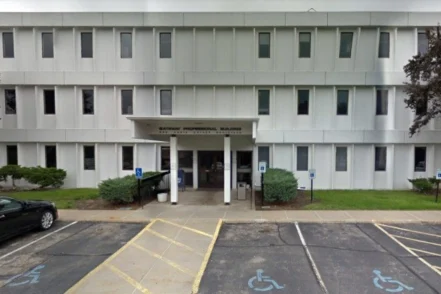 Nebraska
NebraskaAssociates in Counseling and Treatment
600 North Cotner Blvd., Suite 119 Lincoln, Nebraska 68505
-
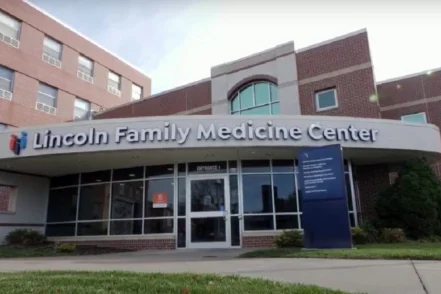 Nebraska
NebraskaLincoln Behavioral Health Center Valley Road
4600 Valley Road, Suite 200 Lincoln, Nebraska 68510
-
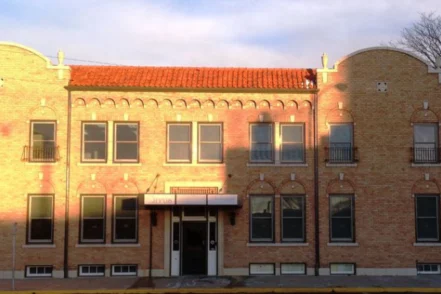 Nebraska
NebraskaCirrus House Inc
1509 1st Avenue Scottsbluff, Nebraska 69361
-
 Nebraska
NebraskaCenterPointe Campus For Hope
1490 North 16th Street Omaha, Nebraska 68102
-
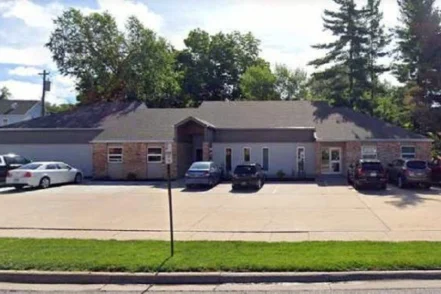 Nebraska
NebraskaHouses of Hope
1124 North Cotner Boulevard Lincoln, Nebraska 68505
-
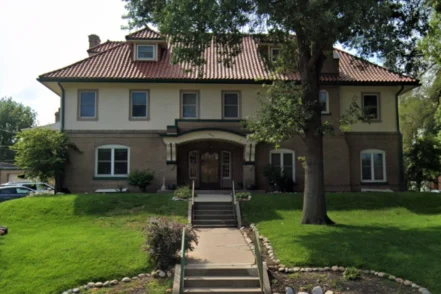 Nebraska
NebraskaArch Halfway House South 37th Street
604 South 37th Street Omaha, Nebraska 68105
-
 Nebraska
NebraskaValley Hope of Omaha
7703 Serum Avenue Omaha, Nebraska 68127
-
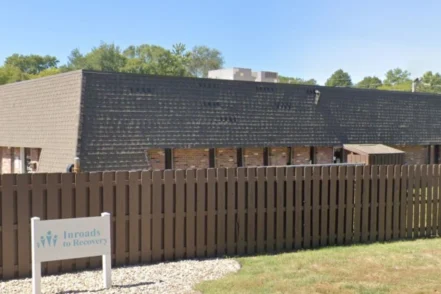 Nebraska
NebraskaInroads to Recovery
2808 N 75Th St Omaha, Nebraska 68134
-
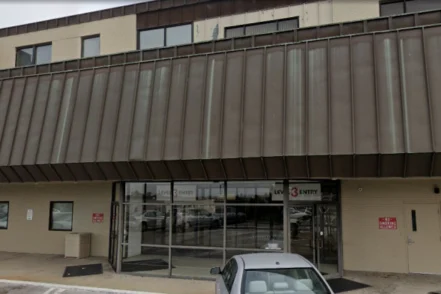 Nebraska
NebraskaBaart Programs
1941 South 42Nd Street, Suite 210 Omaha, Nebraska 68105
-
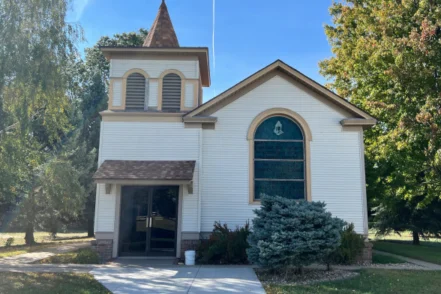 Nebraska
NebraskaValley Hope of ONeill
1421 North 10Th Street ONeill, Nebraska 68763


